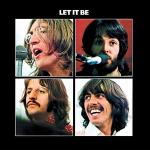
Former Christian Dr. David Nicholls wrote his deconversion story, entitled, Real Deconversion Story #19 – David N. (10-15-21). His words will be in green. I responded to one particular claim of his, and then PsiCop picked it up from there and counter-replied to my comment. His words will be in blue.
*****
I lost count of how many Christians I met who presented a sickly-sweet, caring facade that suddenly disappeared once they realized their faith was being challenged, and their initial demeanour was swiftly replaced with fierce hostility and resentment.
I imagine many unbelievers who have attempted to have a meaningful exchange with Christians on the internet have witnessed this disagreeable phenomenon. Such hostility by Christians is not only apparent if their beliefs are challenged, but is also demonstrated by an intolerance of anyone of whom they disapprove.
I respectfully submit that this is not a peculiar characteristic of Christians, but of all human beings (and now more than ever, as the culture becomes more and more immersed in postmodernist subjectivism). The above attitudes are precisely how many people here (with very few exceptions; I hasten to add that Jonathan himself is generally kind and friendly) treat any Christian who dares dissent from the atheist “orthodoxy.” . You can look through a few threads to quickly verify this. I simply block perpetual insulters, so I don’t see most of them. I don’t have time for juvenile mud fights. Life is too short. But the insults are legion and the hostility palpable.
The exact atheist analogy to the Christian having their faith challenged is to have their deconversion story scrutinized (as to various claims made therein that can be challenged). You wouldn’t believe how angry atheists get: more than a match for any Christian anger and insecurity you observe, believe me! And that is my point: the contempt of facing critique is very much a human characteristic: that cuts across all social groups, and it is unfair to pin that solely on Christians, or to act as if they are uniquely sensitive, thin-skinned, and defensive when critiqued.
Other atheists simply ignore any critiques. I’ve gone through that routine literally 144 times, with Bob Seidensticker (74 times), Dr. David Madison (46 times), and John Loftus (24 times): all very active online, criticizing Christianity and the Bible in a polemical and mocking fashion on a daily basis. But question anything they assert, and they flee to the hills, while sending a few pointed insults on their way up the hill . . .
It’s interesting you’d defend Christians by portraying them as no different from other humans.
I did no such thing. What I stated was: “I respectfully submit that this [oversensitivity to criticism] is not a peculiar characteristic of Christians, but of all human beings.” And that is a true statement. No one could know this better than I do, as an apologist, with the experience of over 1000 dialogues with folks of almost all major worldviews.
Dr. Nicholls was trying to imply that somehow Christians as a social group are uniquely prone to being defensive when criticism is offered, and hostile, if it continues to be offered. My counter-point was that this is, in fact, a general shortcoming of all human beings, across all social groups. People are generally insecure, and this includes not liking much at all being told we are wrong, even about what we believe. Again, as an apologist by trade, I know this firsthand, with massive experience; since we defend certain things as true and critique things that we believe are wrong. People (all people, speaking generally) don’t like to be told that they are wrong.
And I would add that in the case of Christians, often their insecurity derives from insufficient training in what they believe (catechesis) and particularly an ignorance concerning why they believe what they do (rational defense of faith, or apologetics). This makes them insecure, sensitive, and/or angry, because they can’t answer sincere, valid questions, and they should be able to in many cases, or at least get the inquirer a source that can answer.
Doesn’t Christianity present itself as a life-changing, and person-changing, belief system?
Absolutely, but this almost always isn’t an instant phenomenon (like, e.g., St. Paul). It’s a lifelong process. Overall, there is much transformation in serious Christian, from what was before. Many of us have been remarkably transformed out of a life of perpetual serious sin.
Shouldn’t following that faith make Christians less prone to hostility after being challenged, than other sorts of people? If not, why not? Does Christianity not have the power to make its followers better human beings than they would be without it? It has a divine origin, does it not? Was it not founded by a deity who actually walked the earth and supposedly established it? If Christians are, in fact, better than other kinds of human beings, what makes them just as hostile to challenge as others?
It should, ideally make them respond in a more “healthy” way, yes, but this would normally require being educated properly in the faith and knowing how to defend the propositions and ideas / doctrines involved. Christians don’t magically receive all knowledge. We have to learn things just as anyone else does.
What’s more … assuming their faith is unassailably and incontrovertibly true, why would any of them actually be hostile to it being challenged? Veracity is its own defense. It makes no sense to be angry, or hostile, toward someone who challenges something that’s absolutely true. To use a different analogue … if someone were to say the earth is flat, or that division by zero is possible, no one would be “hostile” to, or angered by, a challenge to those items of common knowledge. Such people are laughable and pathetic, but they don’t arouse hostility or anger. Just dismissal as deluded cranks.
I totally agree, but again, this requires prior knowledge. This is why I marvel at atheist hostility to Christians, which we see constantly in this very forum. Y’all ought to be ecstatic that you have an opportunity to preach your views to us outsiders, but for some reason it ain’t that way at all.
If you want to insist that Christians are no different from other kinds of people when their beliefs are challenged, you’re tacitly saying their belief system itself is no different from other human belief systems.
Not at all, because here we are comparing one aspect concerning one situation to an entire worldview and the results it produces. I would say that even secular sociology verifies that Christians are different (more charitable and more happy and fulfilled), in, for example, how much charity we give compared to atheists, and in the happier marriages (and even more fulfilling sex lives) in committed Christian couples:
Seidensticker Folly #1: Atheist vs. Christian Generosity [8-12-18]
Sociology: Devout Married Christians Have Best Sex [2-29-20]
That in turn means it’s just as uncertain as all those other belief systems. And that, by extension, diminishes its presumed veracity and even undermines its claimed divine origin.
Not at all, because you already have a false premise that you are burdened with, as explained above.
I’m not sure what the point would be of challenging someone’s deconversion (or even conversion) story. A person’s personal experience is what it is, and a deconversion story is a narrative of that. Are you suggesting atheists’ deconversion stories are lies? That when, for example, they say they were religious, but then became non-religious, for whatever reasons … are you saying the events they relate never happened? That certainly is possible. It’s very possible, in fact. But, if you make it your business to challenge these deconversion stories, on what grounds can you ever claim any of them are fraudulent? Do you have direct knowledge of the life of an atheist, to the point where you can show his/her deconversion story is false? That too is certainly possible* … but I doubt you could do that with every one of them you come across.
I’ve explained the perfectly sensible, justifiable reasoning employed in the idea of a Christian critiquing an atheist deconversion story in my article: Why Do I (or How DARE I?!) Critique Deconversions?
I virtually never accuse someone of lying or being deceitful. My main critique has to do with lack of knowledge and getting facts wrong, or logical fallacies, which are very common.
What you’re going to end up doing, is calling atheists liars and frauds — and it’s hard to imagine you could do that, and back that up with evidence, in more than a tiny handful of cases. That certainly will arouse hostility in them. Why would it not? What human being would want to be called a liar by you? I wonder if your game is to run around calling atheists liars and frauds, then sit back and call yourself a “victor for Christ” for having done so. That has to be a hollow victory.
Well, this is an incorrect description of what I do. I say they were incorrect, in error, lacked knowledge, were led astray, not that they are liars and frauds. Even with the three men I mentioned, who have literally ignored scores and scores of my critiques, I don’t say they are liars or even that they are insincere. I say they are misinformed, and intellectual cowards, lacking the courage of their convictions. The demonization of everyone who disagrees with us is a child’s game and the ploy of mental midgets.
If this is your way of reaffirming your faith in Christianity — a religion you’ve earlier implied isn’t anywhere near as true, nor as divine, as you’d probably like to think it is — then all I have to say is, good luck to you. Because you need a lot more help than anyone else can give you.
Now your “conclusion” is based on two prior false premises. The entire chain is only as good as the links in it.
One last thing: You appear to believe that making atheists hostile or angry also means they’re wrong.
I never claimed such an idiotic thing. What I have repeatedly noted is that atheists get as angry as anyone else when critiqued, and that most of those even among your “champions” run from constructive criticism and want no part of that or a serious, civil dialogue. They are certainly no better than Christians in this regard, and I would say they are worse.
That, however, is not true. Whether or not someone is angry doesn’t, by itself, make anything they say or believe untrue. Angry and hostile people can be, and often are, right about lots of things. Don’t confuse hostility or anger with error. To do so is illogical.
I totally agree!
* Personal testimonies, memoirs, etc. are always questionable, whether they’re offered by atheists or others. The examples of Mike Warnke and Lee Strobel attest to that, along with many others.
That’s not my position. I accept people at their word, as sincere, short of overwhelming reason to question their credibility and truthfulness (such as hostile witnesses in courts could establish). So it looks like you are merely projecting your own cynicism about people’s own reports on their own lives onto me, where it isn’t present.
And I take this position because Christianity (particularly St. Paul in 1 Corinthians 13) commands us to believe the best of other people, not the worst.
PsiCop replied, but never really responded directly to my arguments. He became more and more harsh and accusatory (sadly: the same old story with so many atheists). Here’s the link if you want to read. Best wishes slogging through all that!
***
Photo credit: Dean Drobot [public domain / Shutterstock / The Epoch Times]
***
Summary: Two atheists argued that atheists are far less sensitive to criticism than Christians. I disagreed, and contended that all human beings tend to dislike criticism.
***













